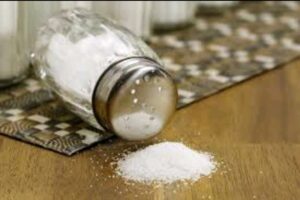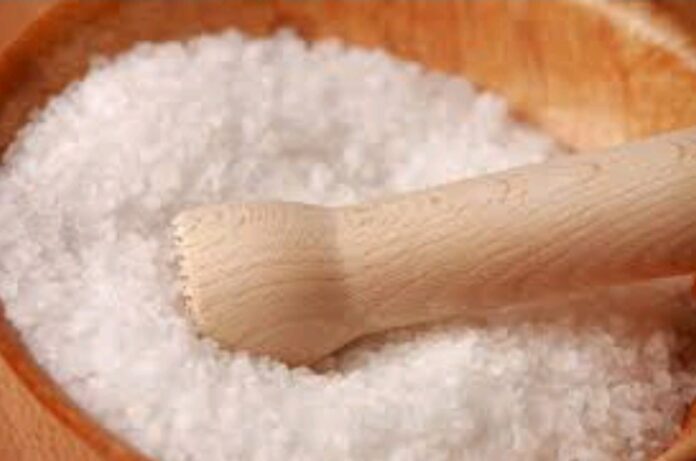Salt, or sodium chloride, is important for your body. It helps keep fluids balanced, nerves working, and muscles functioning.
However, too much salt can cause health problems.
High Blood Pressure
Eating too much salt can raise your blood pressure. High blood pressure can make your heart work harder and increase the risk of heart disease and stroke.
Heart and Kidney Problems
High blood pressure from too much salt can lead to heart attacks and heart failure. It also makes your kidneys work extra hard to remove the excess salt, which can damage them over time.
Swelling and Bone Health
Too much salt can cause your body to retain water, leading to swelling, especially in your hands, feet, and ankles. It can also cause your body to lose calcium, which is important for strong bones, increasing the risk of osteoporosis.

How Much Salt is Safe?
The World Health Organization recommends less than 5 grams (about one teaspoon) of salt per day. Many people eat more than this without realizing it because salt is hidden in many processed and restaurant foods.
Tips to Reduce Salt Intake
– Read Food Labels: Check for sodium content and choose lower-sodium options.
– Cook at Home: This way, you control the amount of salt used.
– Avoid Processed Foods: These often have high salt levels.
– Use Herbs and Spices: Flavor your food with these instead of salt.
While salt is essential, it’s important to eat it in moderation. Cutting back on salt can help keep your blood pressure in check, protect your heart and kidneys, reduce swelling, and keep your bones strong.
Making small changes in your diet can greatly improve your overall health.




